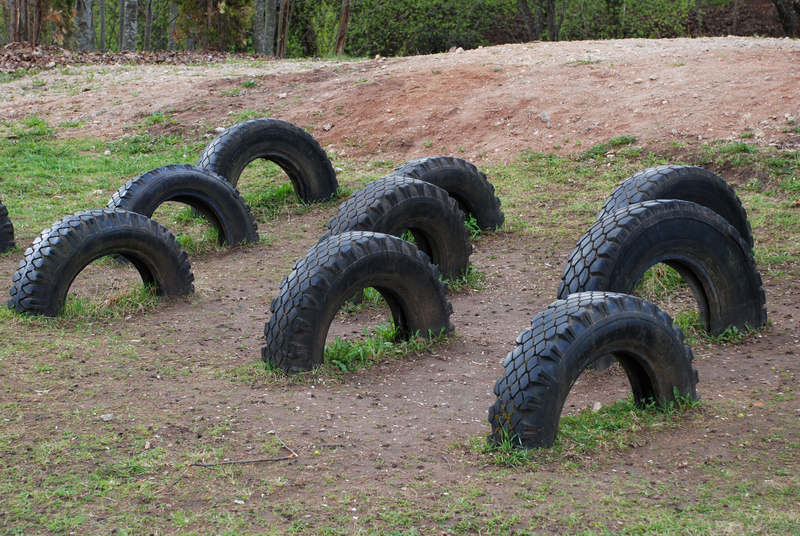Posted on 14/03/2025
Are You Recycling Wrong? Find Out Now
Recycling is one of the easiest and most effective ways to contribute to a sustainable environment. However, many people inadvertently recycle incorrectly, which can render their efforts ineffective. Are you recycling wrong? Let's find out together and explore how you can make your recycling process more efficient.
Common Recycling Mistakes
Despite good intentions, many of us make frequent mistakes when it comes to recycling. Here are some of the most common errors:
1. Not Cleaning Out Containers: Contaminants like food residue can spoil entire batches of recyclables. Always rinse out your containers before placing them in the recycling bin.
2. Using Plastic Bags: Most recycling centers do not accept plastic bags because they can clog processing machinery. It's better to recycle plastic bags at designated locations.
3. Wishcycling: This is the practice of throwing questionable items in the recycling bin, hoping they can be recycled. It's essential to know what your local recycling program accepts.
4. Recycling Non-Recyclables: Items like greasy pizza boxes, certain types of plastics, and broken glass are not recyclable through most curbside programs.
5. Ignoring Local Guidelines: Recycling rules vary by location. Make sure you're familiar with the specific guidelines in your community.

How to Recycle Properly
Now that we've pinpointed common mistakes, here's how you can recycle more effectively:
1. Get Informed: Different localities have different recycling capabilities and rules. Check your local government or waste management website for guidelines.
2. Clean Your Recyclables: Make a habit of rinsing out containers to remove any food or liquid residue.
3. Separate Materials: Many areas require you to separate recyclables like paper, glass, and plastic.
4. Avoid Contamination: Make sure to remove any materials that your local center doesn't accept.
5. Flatten Boxes: Break down cardboard boxes to save space and make them easier to process.
Tips for Effective Recycling
1. Label Bins Clearly: Use labels to clearly differentiate between types of recyclables.
2. Keep a Recycling Guide Handy: Place a list of recyclable items near your recycling bin for easy reference.
3. Educate Your Household: Ensure everyone in your home understands what can and cannot be recycled.
4. Stay Updated: Recycling programs and guidelines change over time, so stay informed about updates in your area.
5. Reduce and Reuse: The best way to manage waste is to produce less of it. Prioritize reducing your waste and reusing items when possible before recycling.
Pros and Cons of Recycling
Pros:
1. Environmental Impact: Recycling reduces the need for raw materials, thereby conserving natural resources.
2. Energy Savings: Producing new products from recycled materials generally requires less energy than manufacturing from raw materials.
3. Economic Benefits: Recycling programs can create jobs and generate revenue from selling recyclable materials.
Cons:
1. Contamination Issues: Improper recycling can contaminate whole batches, sending them to landfills instead.
2. Cost: Recycling isn't always cost-effective. The process can be expensive and sometimes less efficient than producing new materials.
3. Limited Market: Not all materials can be recycled profitably, which can limit the feasibility of recycling certain items.

Takeaways
- Always follow local recycling guidelines.
- Ensure recyclables are clean and free of contaminants.
- Separate materials appropriately.
- Be mindful of what items can and cannot be recycled.
- Stay updated on changes to recycling programs in your area.
Conclusion
Recycling correctly is crucial for maximizing environmental benefits and minimizing waste. By staying informed, reducing contamination, and following local guidelines, we can improve the effectiveness of our recycling efforts. Small changes can lead to significant impacts in our quest for a sustainable planet.
Remember, the best approach to waste management is to reduce, reuse, and then recycle.
Direct answer: Yes, you could be recycling wrong. Educate yourself on local recycling guidelines, ensure all items are clean, and avoid common mistakes to recycle effectively.
Latest Posts
Tips for Proper Disposal of Regular Waste
Garbage Cleanup Bags - Efficient Skip Substitute

































 Get a Quote
Get a Quote